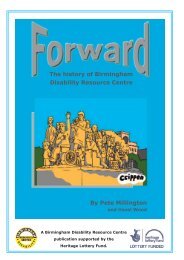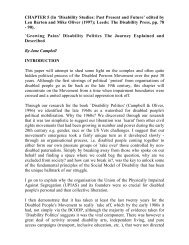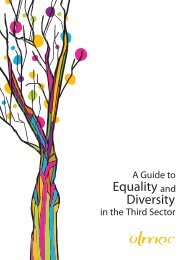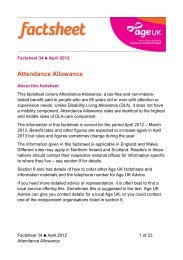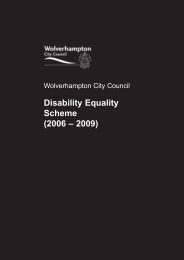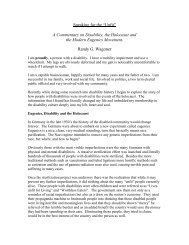What equality law means - Birmingham Disability Resource Centre
What equality law means - Birmingham Disability Resource Centre
What equality law means - Birmingham Disability Resource Centre
Create successful ePaper yourself
Turn your PDF publications into a flip-book with our unique Google optimized e-Paper software.
Reasonable adjustments in practice<br />
Examples of steps it might be reasonable for you to have to take include:<br />
• Making adjustments to premises.<br />
For example:<br />
An employer makes structural or other physical changes such as widening a<br />
doorway, providing a ramp or moving furniture for a wheelchair user; relocates<br />
light switches, door handles, or shelves for someone who has difficulty in<br />
reaching; or provides appropriate contrast in decor to help the safe mobility of a<br />
visually impaired person.<br />
• Allocating some of the disabled worker’s duties to another worker.<br />
For example:<br />
An employer reallocates minor or subsidiary duties to another worker as a<br />
disabled worker has difficulty doing them because of their disability. For example,<br />
the job involves occasionally going onto the open roof of a building but the<br />
employer transfers this work away from a worker whose disability involves severe<br />
vertigo.<br />
• Transferring the worker to fill an existing vacancy.<br />
For example:<br />
An employer should consider whether a suitable alternative post is available for a<br />
worker who becomes disabled (or whose disability worsens), where no<br />
reasonable adjustment would enable the worker to continue doing the current<br />
job. This might also involve retraining or other reasonable adjustments such as<br />
equipment for the new post or a transfer to a position on a higher grade.<br />
60




